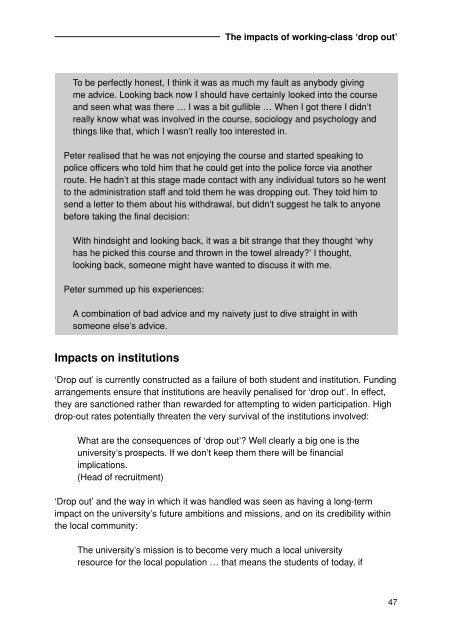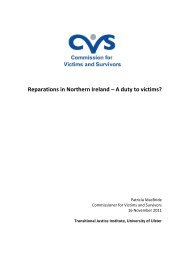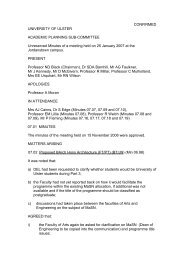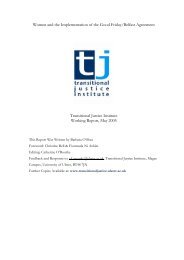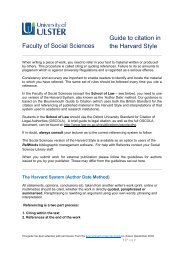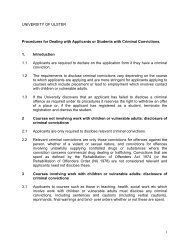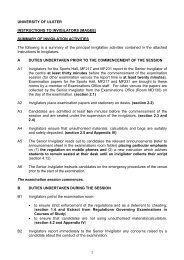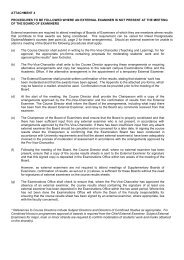From life crisis to lifelong learning: Rethinking working-class 'drop out'
From life crisis to lifelong learning: Rethinking working-class 'drop out'
From life crisis to lifelong learning: Rethinking working-class 'drop out'
You also want an ePaper? Increase the reach of your titles
YUMPU automatically turns print PDFs into web optimized ePapers that Google loves.
The impacts of <strong>working</strong>-<strong>class</strong> ‘drop out’<br />
To be perfectly honest, I think it was as much my fault as anybody giving<br />
me advice. Looking back now I should have certainly looked in<strong>to</strong> the course<br />
and seen what was there … I was a bit gullible … When I got there I didn’t<br />
really know what was involved in the course, sociology and psychology and<br />
things like that, which I wasn’t really <strong>to</strong>o interested in.<br />
Peter realised that he was not enjoying the course and started speaking <strong>to</strong><br />
police officers who <strong>to</strong>ld him that he could get in<strong>to</strong> the police force via another<br />
route. He hadn’t at this stage made contact with any individual tu<strong>to</strong>rs so he went<br />
<strong>to</strong> the administration staff and <strong>to</strong>ld them he was dropping out. They <strong>to</strong>ld him <strong>to</strong><br />
send a letter <strong>to</strong> them about his withdrawal, but didn’t suggest he talk <strong>to</strong> anyone<br />
before taking the final decision:<br />
With hindsight and looking back, it was a bit strange that they thought ‘why<br />
has he picked this course and thrown in the <strong>to</strong>wel already?’ I thought,<br />
looking back, someone might have wanted <strong>to</strong> discuss it with me.<br />
Peter summed up his experiences:<br />
A combination of bad advice and my naivety just <strong>to</strong> dive straight in with<br />
someone else’s advice.<br />
Impacts on institutions<br />
‘Drop out’ is currently constructed as a failure of both student and institution. Funding<br />
arrangements ensure that institutions are heavily penalised for ‘drop out’. In effect,<br />
they are sanctioned rather than rewarded for attempting <strong>to</strong> widen participation. High<br />
drop-out rates potentially threaten the very survival of the institutions involved:<br />
What are the consequences of ‘drop out’? Well clearly a big one is the<br />
university’s prospects. If we don’t keep them there will be financial<br />
implications.<br />
(Head of recruitment)<br />
‘Drop out’ and the way in which it was handled was seen as having a long-term<br />
impact on the university’s future ambitions and missions, and on its credibility within<br />
the local community:<br />
The university’s mission is <strong>to</strong> become very much a local university<br />
resource for the local population … that means the students of <strong>to</strong>day, if<br />
47


